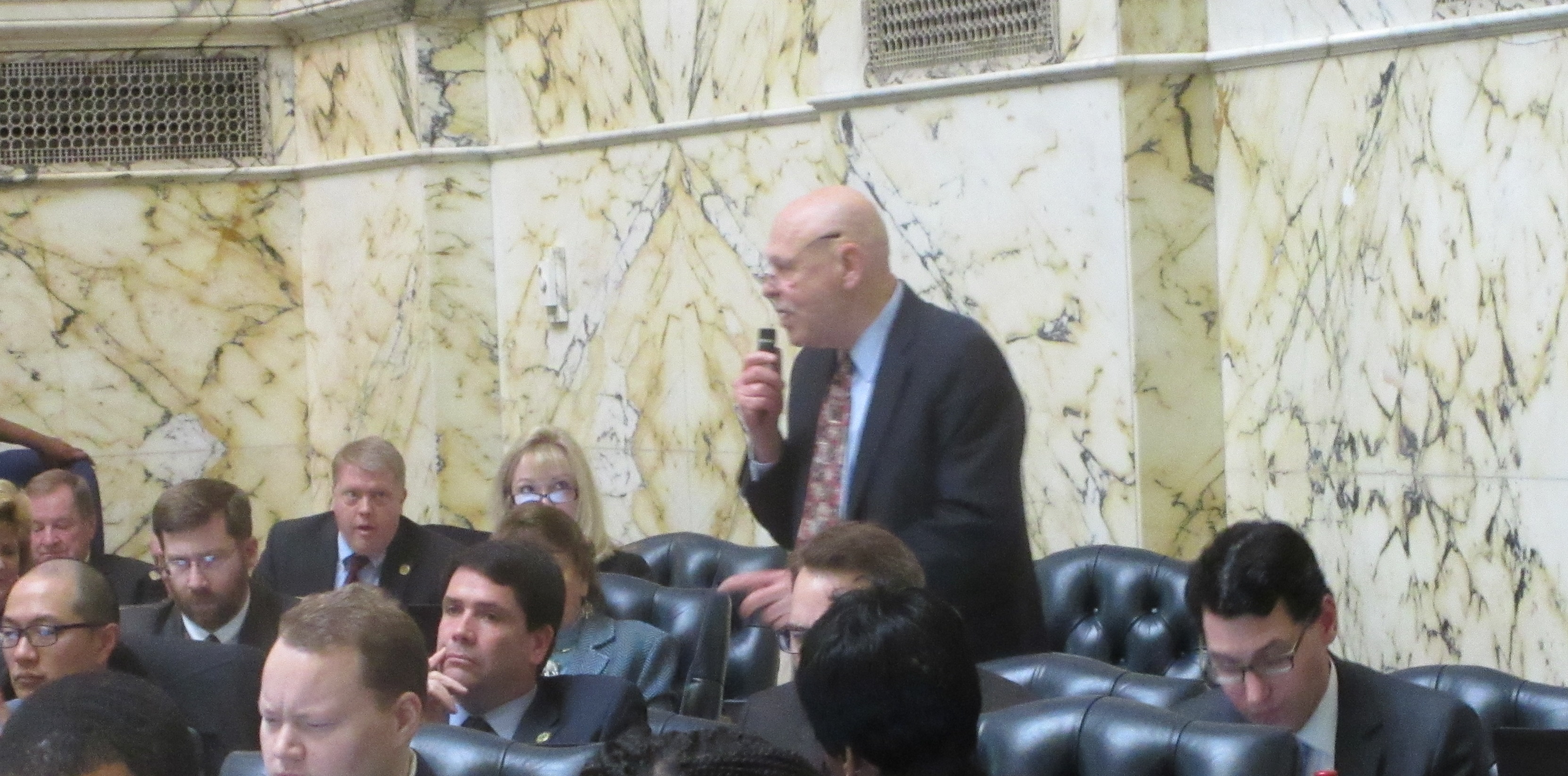By Len Lazarick
I am often asked for predictions about upcoming news events, particularly the outcome of elections or legislation.
My standard answer is that I have enough trouble finding out the facts about things that have already happened. It is much more difficult to make accurate forecasts of what will happen in the future. Yet journalists try to do it all the time.
Eighteen months ago, I wrote: ” the Maryland General Assembly passed bills that will likely set up one of the most contentious legislative fights of its election year session in 2018.”
I was describing the creation of the Commission on Innovation and Excellence in Education to revise school funding formulas, now nicknamed the Kirwan Commission after the former university chancellor who chairs it.
Suddenly last week, Chairman Brit Kirwan said the commission wouldn’t be able to meet the deadline those bills established, as reported here Wednesday. My prediction of a broad and contentious debate about how to dole out state aid for education this coming session was off by at least a year.
Another prediction
Such a debate will still likely occur, but with a new batch of legislators in 2019 — maybe even a new governor, if Democrats get their way and defeat Republican Larry Hogan. Without a Democratic governor, advocates for more education funding fear several years of stalemate.
Commission members who thought increased funding for public schools was too important to delay were deeply disappointed last week, but they shouldn’t have been too surprised. The work of the commission was too broad and consensus on their recommendations was happening too slowly for their work to be done in the next two months.
“Our charge is much, much broader than money,” commission chair Brit Kirwan told the commission members as they got started a year ago. “Equally important is how we spend the money.”
“What are the successful innovations that can make our schools better,” Kirwan said at the time.
With the help of national consultants who have studied the best performing schools in the U.S. and overseas, Kirwan has led the commission into recommending a major revamping of the education system, especially a broad restructuring of how teachers are recruited, trained, paid and do their jobs. This recommendation would give them far more responsibility and better pay, and likely reduce the number of administrators and supervisors.
There has also been great emphasis on giving students from poverty and their families more direct support — not just through lump sum payments to school systems, the way it is done now, but aid that filters down to the school and staff that work directly with students.
The commission is reviewing dozens of major changes to how students are taught and how they should be assessed.
Not simple
All of these recommendation must be fleshed out before the commission determines how much they will cost. Hence, the delay till next June or later.
None of this will be simple, because responsibility for public education is fragmented and diffuse. The state and the legislature may be at the top, but there are 24 school systems operated by 24 local school boards with many different union contracts. Half the funding comes from county governments.
Whatever the commission decides, it will cost more — one of the safest predictions about the commission’s work. Consultants have recommended that the state spend $1.9 billion more on K-12 public schools.
Where will more money come from? That is not part of the commission’s task.
The harsh fiscal reality is that state revenues are rising only at 3% a year while spending, including mandates for school aid, are rising faster than that.
Any new mandate for school spending, especially one that would require new taxes, would be resisted strongly by Hogan and Republican legislators. Democrats would be fighting among themselves for a larger slice of the pie for their home counties.
The pressure to spend more on schools and students will not go away. That’s why so many groups supported the creation of the Kirwan Commission. Increasing public support to increase spending but also change how that money should be spent is one of the reasons Kirwan wanted to delay.
The battle over how to do that has been postponed for at least year, while the commission tries to resolve its own differences. Frustrated education advocates might seek some temporary hikes anyway, particularly to fund more pre-kindergarten.





The first predictions (and the most durable and consequential) were made via countless soft estimates of future cost “savings” in (APA’s) thick consultant report. Such “savings” were neither objective nor quantitative, yet they’ll be cherry-picked to justify spending increases, since hard money is scarce. I predict the “folly of predictions” will materialize well after Kirwin is gone, money is spent, and APA’s soft predictions of cost “savings” are proven wrong.
Personally, I’m tired of waiting for a bunch of non educators to make decisions that directly affect my children. Teachers are educated professionals and they need to be treated as such, paid accordingly and trusted to do what is right for children. So much money is wasted on education reform…. experiments on children that don’t work (common core, test based accountability) imposed by free market enterprise. Politicians and their think tank wonks (Finn, Smarick, Petrilli) have no right injecting education policy onto our children. The only way politics should be involved in education is for the fair distribution of tax dollars….PERIOD! Plenty of money to be found by trimming the fat at MSDE, decreasing admin at the county levels, getting rid of the Common Core and it’s evil twin PARCC (Pearson testing company), getting rid of most of the expensive ed tech contracts, severing contracts with the other testing companies (college board/AP). Parents better wake and smell the coffee because there is plenty of money to be put to good use, but it is now being spent unwisely . Test based accountability (teaching to the test) is not an education…it’s simply a way to get parents riled up enough to accept higher tax rates. The only people benefitting from education are the 1% ers (Gates, Chan/Zuck, Broad, Walton, Silicon Valley etc etc)….not the children.